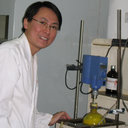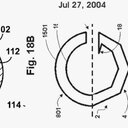Reduction of the pro-inflammatory response by tetrandrine-loading poly(L-lactic acid) films in vitro and in vivo.
Paraules clau
Resum
Inflammatory response of implantable biomaterials and drug delivery vehicles, driven by the reaction of macrophages to foreign body particles released from the implant, is an urgent problem to resolve. Despite this, little is known about the inflammatory molecular mechanism following the implantation of biomaterials and the evaluation of anti-inflammatory biomaterials. In this study, tetrandrine (TET) was loaded into poly (l-lactic acid) (PLLA) films to assess the anti-inflammatory effects in vitro and in vivo. The water contact angle measurement indicated the variation of hydrophilicity and the electron spectroscopy for chemical analysis (ESCA) data suggested that TET was loaded into PLLA films, which were marked as enriched with nitrogen atoms. TET-loading PLLA films had satisfactory sustained releasing behavior in salicylic acid solution with accelerating release. RAW 264.7 macrophages cultured in TET-loading PLLA films maintained lower levels of chemokines, cytokines, and enzymes involved in the inflammatory process, such as NO, TNF-α, IL-6, iNOS, COX-2 than control PLLA films, suggesting that TET-loading PLLA films could regulate the mRNA expression and protein expression to reduce the inflammatory response in macrophages. The degree of inflammatory reaction for the implant with the TET-loading PLLA films was significantly less severe than that close to control PLLA films in 4, 12 weeks after operation in rats. The present study will provide a new method to evaluate and treat the biocompatibility related to inflammatory response for implanted biomaterials and drug delivery system.




